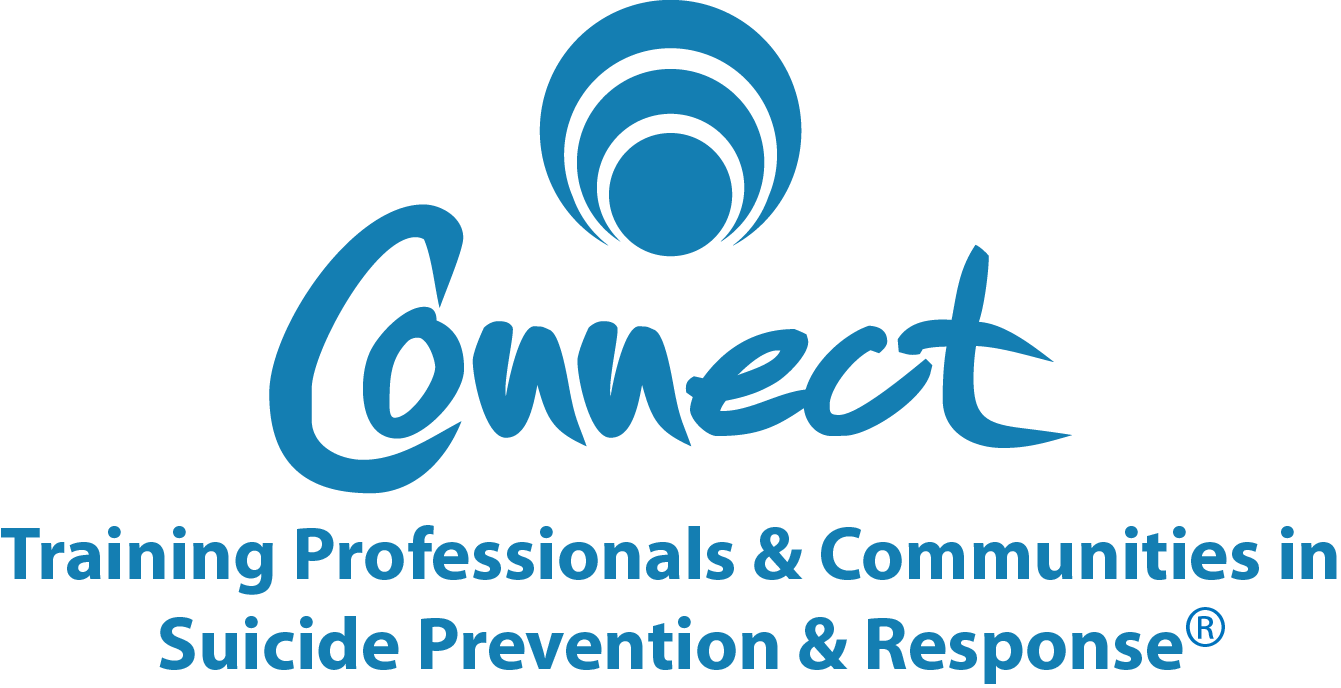Available Services
Connect trains professionals and community members to prevent and respond effectively to suicide across the lifespan. Our public health, socio-ecological model emphasizes collaboration between service providers. Best practice protocols are provided for each service provider discipline. The training can be customized to meet the needs of a community or organization.
Connect Suicide Prevention/Intervention Training increases the capacity of professionals and communities to prevent suicide across the lifespan. Connect uses a public health approach and incorporates key elements of the National Suicide Prevention Strategy. Applying a unique holistic model and offering a community planning component, Connect stands apart from other training programs.
A suicide can have a devastating impact on a community or organization. The shock and grief can ripple throughout the community affecting friends, co-workers, schools, and faith communities. Connect postvention training helps service providers respond in a coordinated and comprehensive way in the aftermath of a suicide or any sudden death.
Since knowing someone who has died by suicide is one of the highest risk factors for suicide, postvention becomes an integral part of suicide prevention efforts.
More than “just training”, Connect fosters relationship building and the exchange of resources among participants. Prior to the training, Connect staff work with the host agency to identify and incorporate local cultural issues and begin planning how the training will be applied and sustained.
The Connect Youth Leader program engages a core group of youth leaders, in partnership with trained adults, to co-facilitate the Connect curriculum for other teen youth. Youth leaders learn to co-present the Connect training through activities and rehearsing sections of the training, while Connect staff observe, interact, and provide coaching. A key imperative of the Youth Leader training emphasizes that the role of youth is to seek help from a trusted adult when there is a concern, NOT take on the role of a counselor. When training youth in suicide prevention efforts, it is vital to have trusted adults trained as well, so they can respond in an effective manner when approached with concerns for peers at risk.
The Connect Young Adult Training is for individuals ages 18 to 25. Participants will gain a better understanding of the stigma associated with behavioral health issues and how mental health and substance misuse issues can increase suicide risk in an individual. Participants will also learn how to identify signs of behavioral health risk, how to talk openly with individuals about their concerns, and how to connect them with resources.
SurvivorVoices: Sharing the Story of Suicide Loss, is a National Best Practice program that teaches those bereaved by suicide how to speak safely and effectively about their loss. Survivors of suicide loss are key partners in suicide prevention and postvention. No one is more passionate about preventing further suicides and letting other survivors know they are not alone .
Stories of suicide loss told from the heart are powerful. They promote healing for those who are newly bereaved, educate the public about how to support survivors of suicide loss, and increase awareness of suicide risk factors and warning signs.
While some individuals who take SurvivorVoices may never share their story publicly, participation in the training helps them with their own grief process and connects them with other survivors. For those who go on to share their stories publicly, they often use this new connectedness to energizes suicide prevention and bereavement support efforts (e.g. starting a survivor of suicide loss support group, hosting a teleconference site, starting a Life Keeper quilt project, initiating a suicide awareness event).
The Connect Prevention Training is available as a series of online modules for:
- Gatekeeper (English) (Spanish)
- Health Care Providers
- Mental Health Providers
- School Personnel (English) (Spanish)







